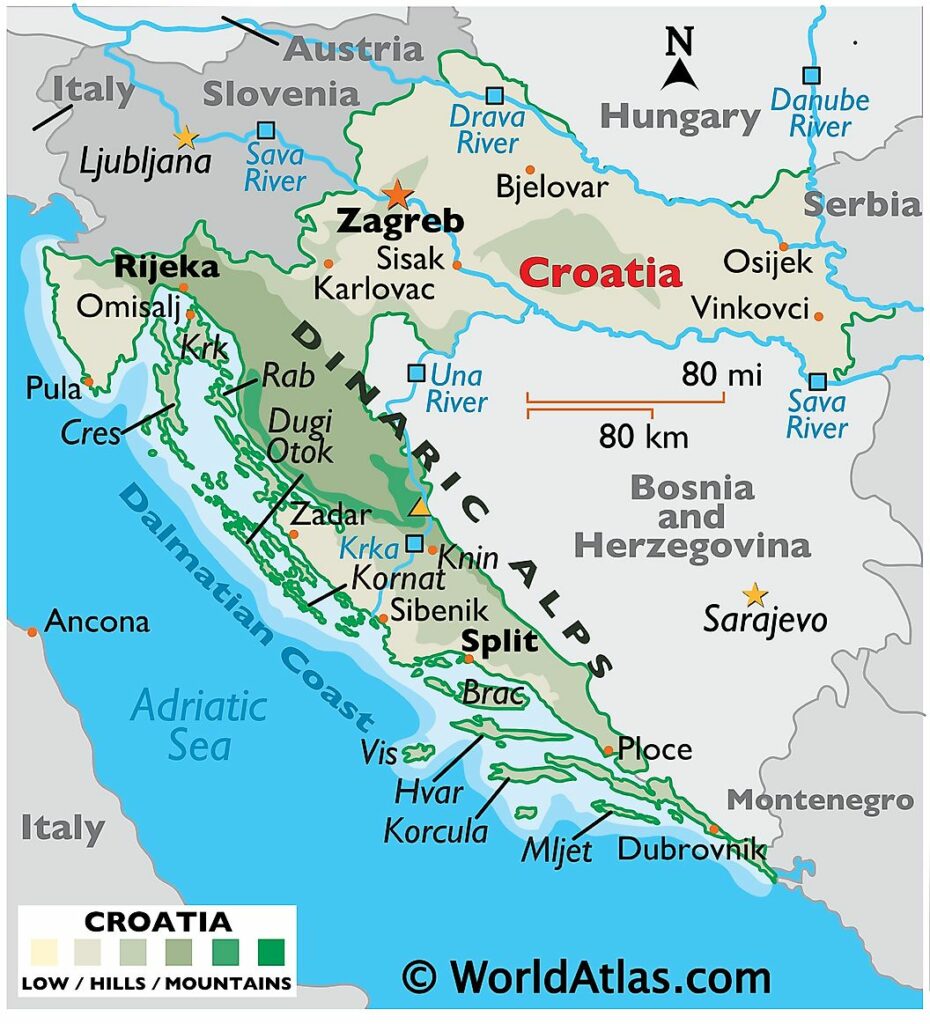Croatia
The lands that today comprise Croatia were once part of the Austro-Hungarian Empire until the close of World War I. In 1918, the Croats, Serbs, and Slovenes formed a kingdom, known after 1929, as Yugoslavia. Following World War II, Yugoslavia became a federal independent communist state consisting of six socialist republics under the strong hand of Marshal Josip Broz, aka Tito. Although Croatia declared its independence from Yugoslavia in 1991, it took four years of sporadic, but often bitter, fighting before occupying Yugoslav forces, dominated by Serbs, were mostly cleared from Croatian lands, along with a majority of Croatia’s ethnic Serb population. Under UN supervision, the last Serb-held enclave in eastern Slovenia was returned to Croatia in 1998. The country joined NATO in April 2009 and the EU in July 2013.
(Source: CIA World Factbook)
Croatia is a popular tourist destination, a land of beautiful beaches with a coastline that stretches along the northern Adriatic Sea over 3,600 miles. Dotted by more than 1,000 islands, it’s an idyllic place for sailing and other water sports.
Yet, despite its natural beauty, Croatia is a challenging place for the gospel. Most of the people are nominal in their faith, and the old churches lie empty. Croatians show a high level of skepticism toward religion.
More Information About Croatia
- Population: 4.2 million
- Official Language: Croatian
- State of the Economy: Croatia is one of the wealthiest former Yugoslav republics. Tourism is a pillar of the economy, and the country is working to become a regional energy hub. Despite becoming a member of the EU and its economic progress, there is still wide-scale unemployment, and young people are migrating in large numbers.
- Religion: Roman Catholic 86.3%, Orthodox 4.4%, and Muslim 1.5%; the rest are either other religions, atheist, or undeclared
- State of the Church: The Evangelical Church of Croatia has about 45 churches. Nationwide, there are an estimated 5,000-7,000 evangelical Christians bringing the message of reconciliation to this war weary land. Bible schools and Christian radio broadcasts are helping believers mature in their faith. However, church growth is slow overall, and the nation needs to experience revival.
Total Population
4,065,000
Population in Unreached
30,000 (0.7%)
Largest Religion
Christianity (92.3%)
% Christian Adherent
92.34%
% Evangelical
0.42%
Evangelical Annual Growth Rate
0.6%
(Global Rate = 2.6%)
(Source: JoshuaProject.com. For more detailed information, visit https://joshuaproject.net/countries/HR
Note: where more current statistics are known, those are being used in place of Joshua Project.)


